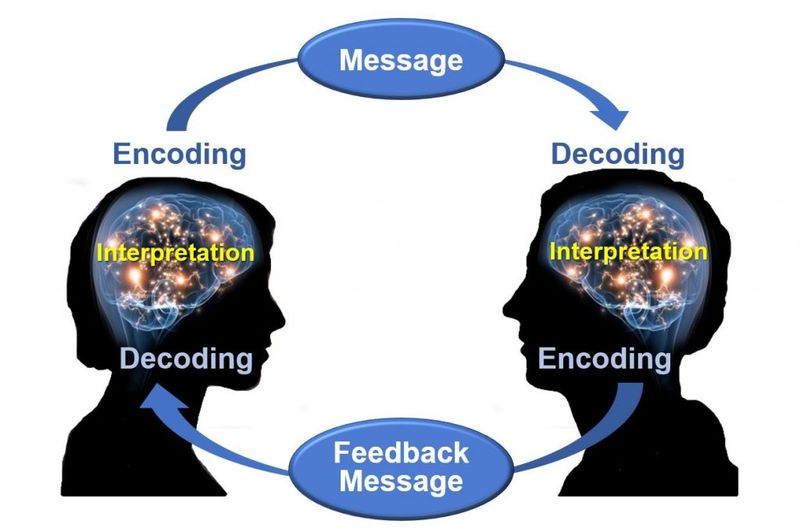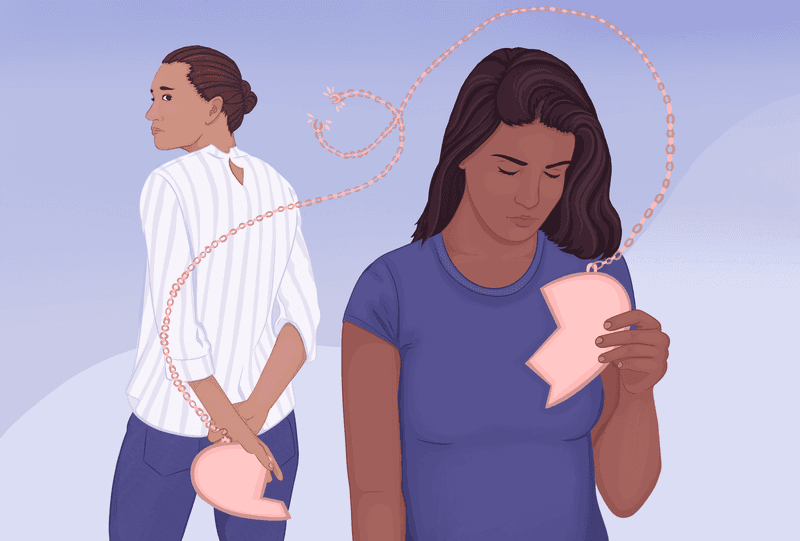Why Does My Partner Annoy Me So Much? 16 Habits That Wear Down Love
Do you ever lie awake, stare at the ceiling, and wonder how you got so irritated by the person you once couldn’t wait to see? Trust me, I get it. Sometimes it sneaks up slowly—resentment, little annoyances, that constant feeling of “why do I have to deal with this?”
You’re not heartless, and you’re definitely not alone. Let’s be honest: it takes guts to admit when you’re not just tired, but tired of each other. If you recognize your relationship here, maybe you’re not broken. Maybe you’re just ready to see the truth.
So, here’s the real talk about sixteen habits that can wear down even the best love stories—and what it looks like when they show up, loud and messy, in real life. No sugarcoating. Just the things that make you want to scream into a pillow, or even walk away.
1. Dare per scontato il proprio partner

Ever notice how you stop saying thank you after a while? You get used to the million tiny ways your partner tries to make life easier. It’s easy to forget how much those things mattered at the start.
That’s the trap—taking each other for granted feels like comfort at first, but it slowly breeds resentment. One day, you wonder why your partner seems colder, or more withdrawn. Truth is, nobody wants to feel invisible. When you skip gratitude, you tell them their efforts don’t count. Eventually, that’s exactly how they start acting: like none of it counts.
That’s the real cost here: you lose that spark of appreciation, and love starts to feel like a daily grind instead of a gift. Once that cycle sets in, it’s tough to break.
2. Neglecting Quality Time

You can sit in the same room every night and still feel a thousand miles apart. I’ve been there—Netflix on, phones in hand, and not a single real conversation all week. It’s wild how easy it is to let life crowd out the moments that make you feel close.
Work, errands, doomscrolling—it all stacks up, and suddenly, you can’t remember the last time you laughed together. And all it takes is to turn off your phone, look at each other and actually listen. When you skip that, the space between you grows quietly until one day you realize you’re basically roommates with a shared Wi-Fi password.
My friend once told me her partner knew more about TikTok trends than about her worries. That landed hard. Real quality time isn’t just a calendar event—it’s letting your guard down, together, regularly. Ignore it, and pretty soon, there’s nothing left but silence and routine.
3. Holding Grudges and Resentment

You think you’ve moved on, but the truth is, that old fight still echoes every time he leaves dishes in the sink. Resentment has a long memory and a sharp edge. You start to keep score—who’s apologized more, who’s done less, who hurt whom last.
It’s exhausting. Every little annoyance gets filtered through that backlog of unresolved pain, and pretty soon, you’re not even arguing about this morning’s mess. You fight about everything you never actually talked through. I’ve caught myself bringing up stuff from years ago, using it as ammo when I felt cornered. It never helped—just made the gap wider.
Therapists will tell you: this is love’s slow poison. It builds gradually, but once it sets in, it colors every conversation, every touch, every plan for the future. The only way out is through—talk it out or let it go. Otherwise, you’ll be living in a house full of ghosts.
4. Constantly Criticizing or Nagging

It starts small—one suggestion here, a little reminder there. But after a while, every word turns sharp. “Did you do this? Why didn’t you finish that?” Suddenly, every conversation sounds like a to-do list with teeth.
Criticism isn’t always about what’s wrong, sometimes it’s about needing to feel in control when everything else feels chaotic. I used to think if I just repeated myself, things would change. All it did was make us both defensive. It’s a quick way to kill the mood and the motivation.
Nagging tells him you don’t trust him to get things right on his own. It chips away at his confidence and your patience. Before you know it, you both walk on eggshells and dread the next complaint. That’s not partnership—it’s a power struggle in disguise.
5. Ignoring Boundaries and Personal Space

Some people need quiet to recharge, others want constant connection. When you don’t respect those differences, things unravel fast. I’ve snapped at my partner for hovering when I just needed a few moments alone, no drama, no deep meaning.
Personal space isn’t rejection—it’s survival. When your requests for alone time get brushed aside, you start to feel suffocated, like you can’t breathe in your own home. That turns love into a cage instead of a comfort.
You can love someone and still need the door closed sometimes. Ignoring that makes everything harder. Trust me, nobody wants to feel like they have to hide in the bathroom just to get a break. That comes with parenting.
6. Neglecting Self-Care and Personal Growth

Here’s the truth: you can’t pour from an empty cup. Skipping your own needs for the sake of the relationship sounds noble, but it’s a shortcut to burnout.
When you let go of your hobbies, your goals, or even basic self-care, you shrink inside. The partnership suffers because you don’t bring your whole self to it anymore.
People change, and they’re supposed to. A relationship can’t thrive if you’re stuck in place, exhausted and numb. At times the bravest thing you can do is make time for your own life—even if it means saying no now and then. That’s not selfish. That’s survival.
7. Being Jealous and Possessive

Here’s the truth: you can’t pour from an empty cup. Skipping your own needs for the sake of the relationship sounds noble, but it’s a shortcut to burnout.
When you let go of your hobbies, your goals, or even basic self-care, you shrink inside. The partnership suffers because you don’t bring your whole self to it anymore.
People change, and they’re supposed to. A relationship can’t thrive if you’re stuck in place, exhausted and numb. At times the bravest thing you can do is make time for your own life—even if it means saying no now and then. That’s not selfish. That’s survival.
8. Failing to Communicate Effectively

It’s wild how silence can be so loud. You think, “He should know what I need by now.” But nobody’s a mind reader.
Missing words pile up, until there’s more unsaid than spoken. That’s when misunderstandings multiply. You assume he doesn’t care, he assumes you’re overreacting. It gets lonely quickly.
Real talk: communication is more about listening than talking. Sometimes, the best thing I did was admit I had no clue what I was feeling—it opened the door for honesty. Without that effort, you’re just two people living parallel lives, hoping the other will bridge the gap.
9. Being Unreliable and Inconsistent

Promises are easy to make and so easy to break. I’ll never forget waiting at a restaurant and hoping my partner would show up this time. The more it happened, the less I believed anything he said.
This is a slow drip that erodes trust. One day he’s all-in, making big plans. The next day, he’s gone or distracted. It leaves you feeling unstable, like you’re the only steady thing in the relationship. That’s a heavy load to carry.
When you can’t count on your partner, you learn to make backup plans—for everything. Eventually, you stop expecting them to show up at all. That’s when love starts packing its bags, one broken promise at a time.
10. Neglecting Physical Intimacy

This isn’t just about sex—it’s hugs in the hallway, a hand on your back, soft moments that tell you you’re wanted.
Neglecting intimacy doesn’t always happen overnight. It can be a slow, unspoken drift—too tired, too busy, too hurt to reach out. The space between bodies grows before you even notice it emotionally. It’s not about blame—it’s about missing that spark that made you feel alive together.
One night, I realized we hadn’t kissed for weeks. It wasn’t a fight, it was just the absence of effort. If nobody bridges that gap, the loneliness gets louder than any argument. Love doesn’t survive on logistics alone. From time to time, skin-to-skin is the conversation you really need.
11. Being Dismissive of Your Partner’s Feelings

“You’re overreacting.” Three words that can unravel a whole day. I’ve had my feelings brushed off with a shrug or a sigh, and it made me feel tiny, like my emotions were just background noise in someone else’s story.
It doesn’t always come from malice. At times it’s just exhaustion, or not knowing what to say. But the impact is the same: you start to believe your feelings aren’t valid, that you’re too sensitive or dramatic. That’s a lonely place to live.
When your feelings don’t fit the script, you start to edit yourself—sharing less, trusting less, protecting yourself from the next round of eye rolls. That’s when intimacy breaks down. Feeling heard is everything.
12. Constantly Comparing Your Relationship to Others

Scrolling Instagram at breakfast, I’d see couples kissing under waterfalls or celebrating anniversaries with balloons. Then I’d look at my own partner, hair a mess, still in sweatpants, and wonder if we were missing something big.
Comparisons are relationship termites. You start measuring your happiness by someone else’s highlight reel, and suddenly, nothing feels good enough. You miss the small, messy, real moments chasing an idea of “perfect love” that probably doesn’t exist.
My therapist once said, “Comparison is the thief of joy.” She wasn’t kidding. Every time I judged us against someone else, I stopped seeing the things that made us us. The fastest way to lose what you have is wishing it looked like someone else’s story.
13. Being Unwilling to Compromise

Ever dig your heels in so deep you almost forget what you were fighting for? I’ve had standoffs about everything from paint colors to holiday plans—sometimes just to prove a point. The truth is, refusing to budge gets lonely fast.
Compromise isn’t losing, it’s choosing to care about the relationship more than being right. It took me years to realize that. Every time I won an argument but lost connection, I wondered if it was worth it. Most of the time, it wasn’t.
The longer you refuse to meet in the middle, the wider the gap grows. It’s not about keeping score or swallowing your needs. It’s about finding new ground, together, that feels like home for both of you. Stubbornness doesn’t keep you safe. It keeps you alone.
14. Neglecting to Show Affection and Appreciation

Affection doesn’t have to be flowers and poetry. It can be a simple “thanks,” a forehead kiss, or a random compliment. I can’t count how many times I made an effort, hoping for a smile, and got a blank look instead.
When appreciation dries up, so does the motivation to keep showing up for each other. You start to wonder if it’s even worth it, or if your partner would notice if you stopped trying. That’s the danger zone: when kindness feels pointless, the relationship starts coasting on empty.
A little recognition goes a long way. The first time my partner said he missed my laugh, it melted months of tension. You don’t need to be over-the-top, but nobody wants to feel invisible, especially to the one person who should see them the most.
15. Being Overly Dependent or Codependent

I once thought needing someone was the same as loving them. Turns out, there’s a line between support and suffocation. When your happiness depends on their every move, you start to lose yourself.
Being overly dependent isn’t romantic—it’s exhausting, for both of you. You forget how to make decisions, chase your own hobbies, or even handle a bad day solo. Your partner ends up carrying the emotional load for both of you, and resentment grows on both sides.
It took me years to reclaim my independence. Healthy love means two whole people showing up, not one person hiding inside the other. If you feel empty without them, it’s time to nurture your own life, too. You matter, with or without a “we.”
16. Failing to Prioritize Your Relationship

Modern life is a time thief. I’ve spent whole weeks with my partner as background noise while I chased deadlines and chased everyone else’s needs. It feels normal—until you realize you forgot to make time for each other, again.
When you treat the relationship like an afterthought, it starts to feel like one. You stop checking in, stop dating, stop showing up the way you promised at the start. That’s when the distance gets permanent, not just practical.
Love doesn’t need grand gestures, but it does need to be a priority. If you don’t carve out space for it, everything else will take its place. The work will wait. Your partner won’t, forever.







